One thing that drives me crazy is when people say things about exclusive pumping that just aren’t true. Here are four of the biggest exclusive pumping myths.
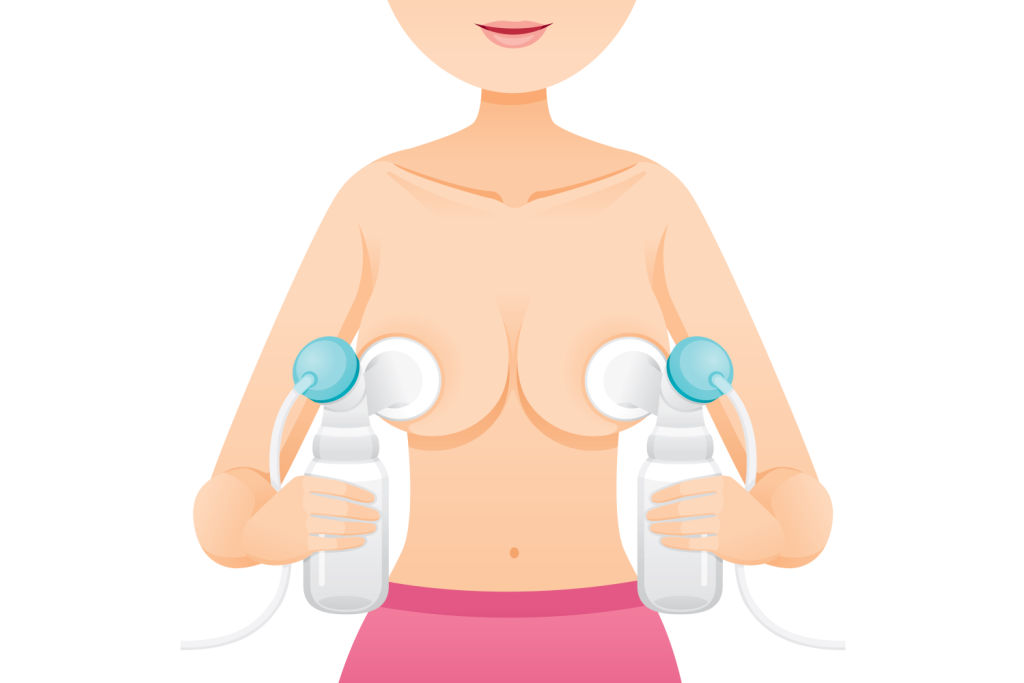
This post may contain affiliate links, which means if you click a link and purchase something, I may make a small commission at no additional cost to you. I only recommend products I love! More information here.
One example is that it’s not uncommon for women to be told that if they exclusively pump, their milk supply will definitely “dry up” within a few months.
If this happens, it’s definitely the exception rather than the rule – but hearing this might stop some moms from even trying to exclusively pump when it’s what they want to do.
Let’s go through 4 stubborn exclusive pumping myths that you may have heard.
1. You won’t be able to establish and maintain your milk supply if your baby doesn’t nurse.
I’m not sure exactly where this myth comes from, but here’s my theory.
It’s not unusual for nursing moms to go back to work and not seem to be able to pump as much as their baby takes from a bottle while in childcare. This has led to the thinking is that breast pumps must not be as effective as nursing babies, and therefore won’t work for establishing milk supply.
It IS true that some women don’t respond as well to the breast pump as others. However, this is in no way universal.
Based on the (unscientific) polls and surveys that I’ve done, about 30% of exclusive pumpers are “undersuppliers,” meaning that they supplement the breast milk that they pump with formula.
That means that about 70% of exclusive pumpers – the majority – are able to pump about as much or more breast milk than their baby eats in a given day.
(Here’s a graph from my milk supply guide showing how the output was distributed among exclusive pumpers in one survey I did. You can see that a majority of the respondents pumped 24 oz per day or more.)

What does this mean? While it’s possible to struggle with milk supply as an exclusive pumper, it’s by no means inevitable. Lots of women are able to establish and maintain a milk supply with only pumping.
2. You won’t be able to bond with your baby as well as if you were nursing.
I can only speak to my own experience here, but there is so much more to bonding with your baby than nursing.
I exclusively pumped for one baby and nursed two. The way I bonded with each of them depended so much more on their individual personalities and factors other than how they were fed.
It was different with my first baby who had colic (fierce love combined with lots of tears from both of us) than with my second baby who would only sleep when held (lots of snuggles, so very tired) than with my third baby who was super easy and sweet but got less of my undivided attention because I had two toddlers.
How your baby is fed does not determine the strength of your relationship.
Need help with exclusive pumping? Use EPUMP30 for 30% off
3. You need a hospital grade pump to be successful.
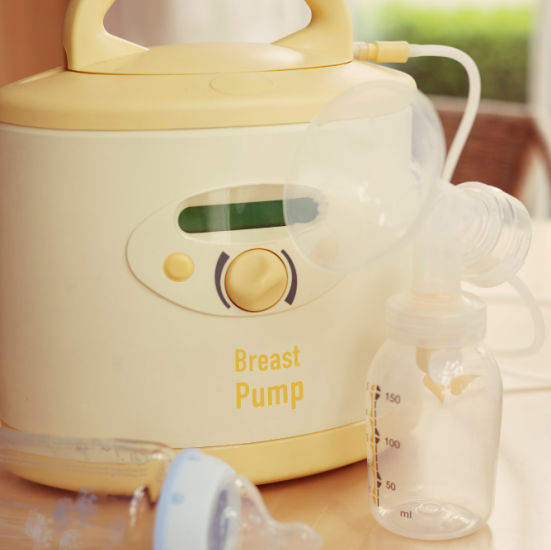
“Hospital-grade” is a marketing term that some breast pump manufacturers will use for some of their pumps. Generally speaking, it means multiple users can use the pump, and the pump may be more powerful than personal pumps. They are often very expensive to buy, but can be rented on a monthly basis.
Let’s look at another (unscientific) poll I did on instagram. (Because there is so little research on pumping and breastfeeding, I resort to doing my own as best I can!)
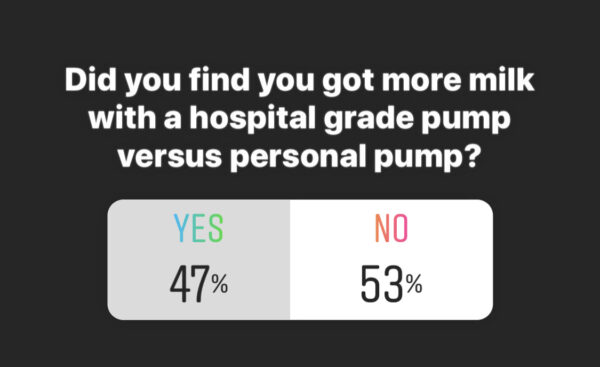
Again, not all women are created equal. Some moms found that hospital grade pumps do get them more milk, but the majority in my poll didn’t.
Is it possible that renting a hospital grade breast pump would be helpful for you? Yes.
Do all exclusive pumpers need a hospital grade breast pump to be successful? No. I exclusively pumped with a Medela Freestyle for 14 months, and I’ve seen thousands of moms in our Facebook group pump with a personal pump.
4. Exclusive pumping isn’t doable long term.
Is exclusive pumping easy? No.
Are there ways to make it manageable and pump for a year or more? YES.
I have some pumping awards that people sometimes screenshot and share on their instagram stories. I reshare these all the time, everything from one month of pumping to two years:

Exclusive pumping is challenging, but it’s absolutely doable long-term if that’s what you want to do.
Want help putting together the perfect pumping schedule for you that saves your sanity AND your milk supply? Check out the Exclusive Pumping Playbook! Includes cheat sheets for setting up systems and routines to make things easier. Use EPUMP30 for 30% off.
Have you heard other exclusive pumping myths? Let me know in the comments!
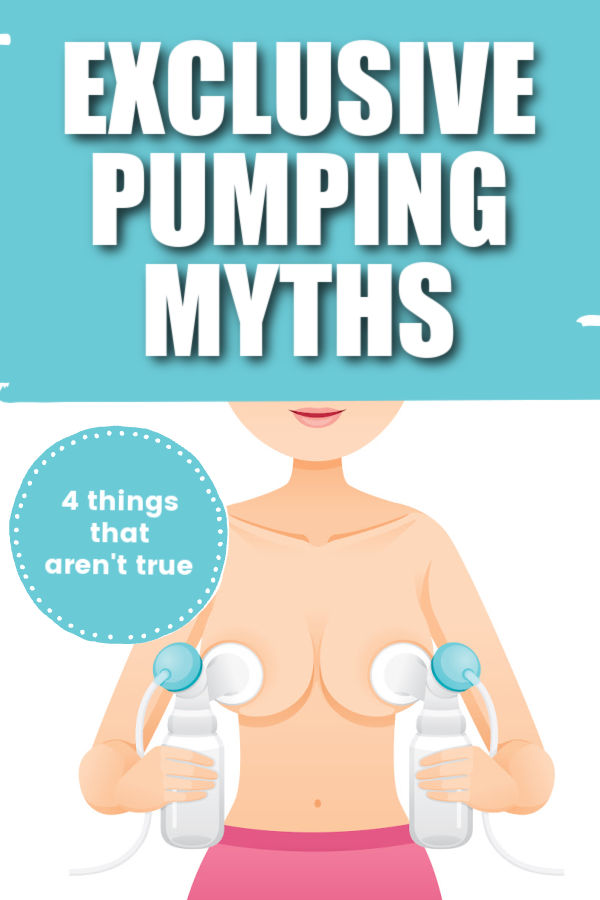
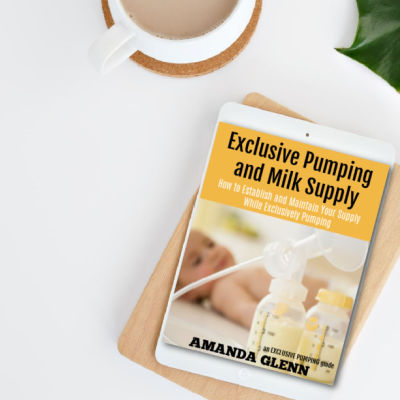

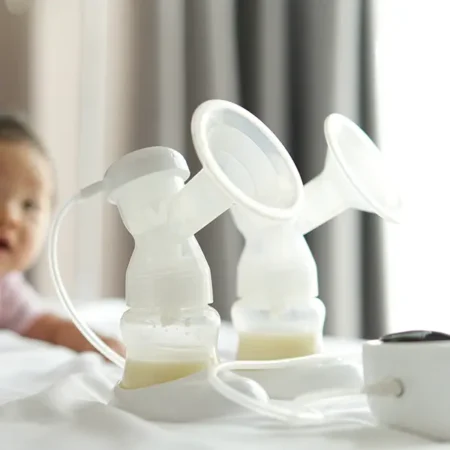












Leave A Reply!